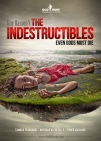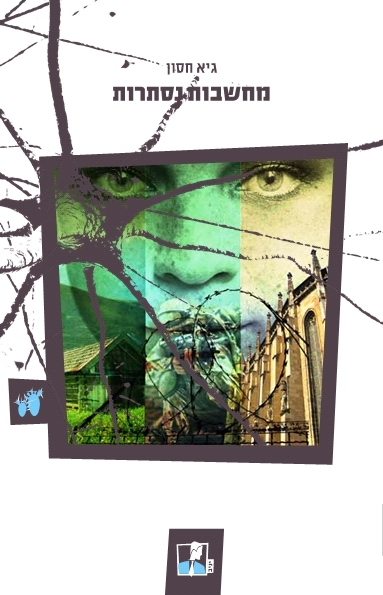If you’re just joining us, here’s the story so far.
Tickling Butterflies is an epic fantasy, containing 128 fairy tales that together create one huge story. We are in the middle:
The Three Doctors
(Containing the cuckoo tale of the three doctors.)
The three of us, Benjamin Miller told King John the Cute, entered the only town on the island of the Land of No Respect. The town, just like the shore, was paved knee-deep with whipped cream.
The first door on the right said, ‘DOCTOR W.’, the second door on the right said ‘DOCTOR Z.’, and the third door on the right said ‘DOCTOR C.’.
Seeking a doctor to help Ochi’s broken hand, but not knowing which doctor was best, we decided to knock on the first door on the right.
An old man with white hair and a stethoscope opened the door.
“Ah, strangers! We don’t get many of those! Hello! My name is Doctor Wacky!”
I explained Ochi’s condition, and Doctor Wacky asked us to come in. “We must examine your friend,” he said happily.
Doctor Wacky put Ochi on the patient’s bed, and began to examine him. The examination was as follows:
Doctor Wacky slapped Ochi’s cheek and said, “Does that hurt?”
“Ow! Yes!”
Doctor Wacky put two fingers up Ochi’s nostrils and said, “How many fingers do you feel?”
“Two. Why are you doing that?”
Doctor Wacky took two steps away from his patient. “Oh, this is very bad. Very bad. The patient has absolutely no sense of humor.”
“No, he has a broken hand,” said Sylvia.
“A broken hand heals,” said Doctor Wacky. “A sense of humor needs to grow from childhood. His condition is much more serious than that. What he needs is an operation. Hold on.”
Doctor Wacky took out his tools and within five minutes performed an operation on Ochi.
When Doctor Wacky stepped away from his patient, we saw that Ochi now had a big, round red button nose.
“What did you to do him?” Sylvia and I yelled together.
“Look!” Doctor Wacky squeezed Ochi’s new red nose, and a loud honk came out.
“Ah!” Ochi shouted in horror.
I quickly grabbed Ochi, and the three of us ran back out to the street.
“There were no doctors like this in my country,” said Ochi, rubbing his big, red nose.
“That was just one doctor. Come, let us knock on the second door. There is no way that there could be two crazy doctors on one street,” I said.
The three of us knocked on the second door, marked ‘DOCTOR Z.’. Immediately, another white-haired doctor opened the door. “Ho! I heard there were strangers in town! My name is Doctor Zany!”
I explained Ochi’s situation, that he had a broken arm and a strange new red nose. “Come in, come in! I will examine you.”
Doctor Zany put Ochi on his patient’s table, then put his hand in Ochi’s armpit and moved his fingers. “Does this tickle?” he said.
“No.”
“Hmmm… Hmmm…” Doctor Zany put his mouth near Ochi’s left ear and said, “Zzzzz….. zzzzzzz…. Zzzzzzzz… Zzzzzzzz… Does that annoy you?”
“Yes! What kind of examination is this?”
Doctor Zany stepped away. “Oh, this is very very serious. You suffer from a severe deficiency in Vitamin L.”
“Vitamin L?” Sylvia asked.
“That’s the vitamin that supplies laughter to the body.”
“But—But—” I began, “his hand is broken.”
“And laughter is the best medicine,” Doctor Zany said. “Everyone knows that. Hold on, I will take care of him.”
Doctor Zany took out his tool kit, and within four minutes had performed an operation on Ochi. In the end, Doctor Zany stepped away and allowed Ochi and us to look at his handiwork.
Together we saw that Doctor Zany had put Ochi’s left hand on the right side of his body and his right hand on the left side of his body!
“What did you do?” the three of us shouted, flabbergasted.
“Let me ask you this,” Doctor Zany said. “How many pies hit you in the face today?”
“None,” said Ochi.
“None,” said Sylvia.
“None,” I said.
“Well, then,” said Doctor Zany and threw pies in all our faces. “That’s one today. Consider that a free service.”
I grabbed Ochi, and the three of us ran back out to the street.
“This place,” Ochi said, shivering from anger, “is… crazy! It’s crazy! Who are these legends? What are they doing here?”
“It is hard to listen to what you’re saying with your big, red button nose,” said Sylvia, half laughing, despite her frustration. “But this is the most unheardest place I ever heard of! There must be some sort of explanation. Still, now we have to fix your hands as well. Let us try the third doctor. There couldn’t possibly be three crazy doctors in one street, could there?”
The three of us agreed that there couldn’t be three crazy doctors in one small street, and so we knocked on the third door.
The third doctor was called Doctor Cuckoo. He asked us to come in.
“Please don’t examine him,” I told the doctor. “It is clear to anyone what is wrong with him. He has a big, red button nose that honks when you press on it, his right hand is on his left side, his left hand is on his right side, and his right hand – now on the left side – is broken.”
“Yes, yes…” Doctor Cuckoo. “It is quite clear what is wrong with him. A quick operation, and I will fix him.”
“Good,” said Sylvia said.
“Wait!” I shouted. “Please explain everything before you do something. One: You said it is clear what is wrong with him. What do you think is wrong with him?”
“His head isn’t screwed on straight,” said Doctor Cuckoo.
“Uh huh,” I said skeptically. “And what kind of operation were you thinking of doing?”
“I’m going to replace his neck with a big spring, and that way his head can bounce around. Shall I get to it?”
“No!” the three of us shouted together.
“What is wrong with this place?” Ochi said. “Why are the doctors crazy? What is your story?”
“The story is simple,” said Doctor Cuckoo. “This place is funny.”
“I do not understand,” Ochi said.
“This place is funny,” said Doctor Cuckoo.
“I do not understand,” Ochi said.
“This place is funny.”
“I do not understand.”
“This place is funny.”
“I do not understand.”
“This place… Are you listening?”
“Yes.”
“…Is funny.”
Ochi and Sylvia and I thought about it for fifty nine seconds, then looked at each other. Ochi said, “Explain it to me another way.”
“All the people and creatures that are funny,” explained Doctor Cuckoo, “come to live in the Land of No Respect. Anyone who lives here is funny. Anyone who is funny, comes to live here.”
“That is the strangest thing I never heard of,” Sylvia said, and I nodded.
“While you think about it, let me ask you this,” said Doctor Cuckoo. “How many times have you been hit in the face with pie today?”
“One,” Ochi said.
“One,” Sylvia said.
“One,” I said.
“Well, then,” said Doctor Zany and threw pies in all our faces. “That’s two today. Consider that a free service.”
With a face full of pie, I grabbed Ochi, and the three of us ran out to the street.
“This land is zany, wacky, and cuckoo!” said Ochi in anger, wiping whipped cream from his face and throwing it on the ground.
“Calm yourself,” I said, wiping whipped cream from my own face as well. “I believe we should give up on finding a doctor on the island. When we get back to the main land, we will find a doctor that will put you back the way you were.”
“I say we go back now,” said Ochi. “There is nothing here for us. This is just where the weird legends go.”
“Could be. But since we’re here, let us explore a little more. Sylvia, what do you say?”
“Just a little more.”
With Ochi outnumbered, we decided to continue and explore the land.
Ochi took a step, slipped on the whipped cream, and fell on his bottom. “This is going to be a lo-o-o-o-o-o-ng trip,” he said.
Now you know the cuckoo story in which we began to discover the secrets of the Land of No Respect. This was also the last happy story that happened to us on the island.
King John the Cute nodded, eager to hear more.
This has been the wacky story in which King John the Cute learned that doctors don’t always help.
(To be continued on Tuesday…)

Like my writing? Try ‘The Emoticon Generation’.






